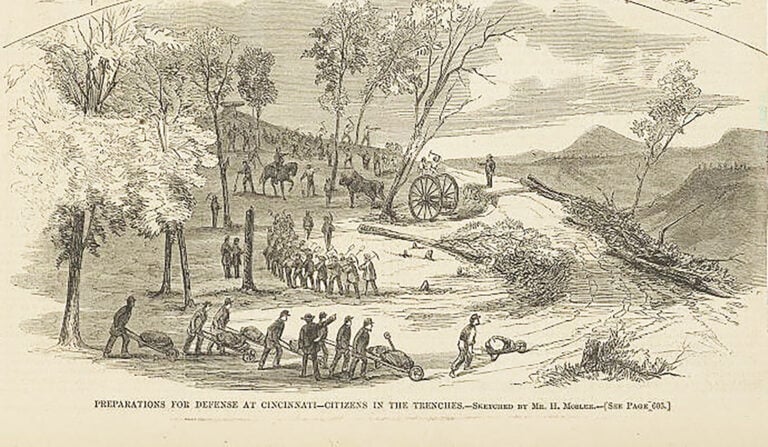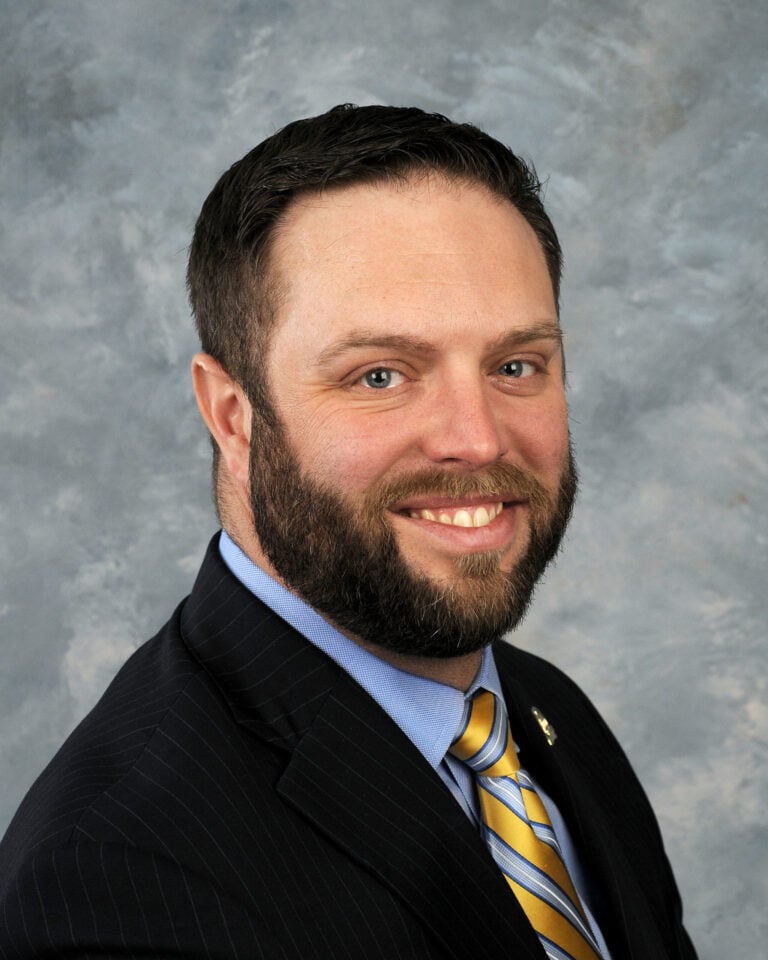
Bill to curb dogfighting
A bill that would make Kentucky the last state in the nation to outlaw the possession, training, breeding and selling of dogs for the purpose of dog fighting has passed the House Judiciary Committee.
House Bill 154, sponsored by House Speaker Greg Stumbo, D-Prestonsburg, and Rep. Joni Jenkins, D-Shively, would add the provisions to current law that makes those who allow or organize the use of four-legged animals in fights for pleasure or profit guilty of felony cruelty to animals in the first degree. Those convicted of the crime face between one and five years in prison.
The bill now goes to the House floor for consideration.
HB 154 “simply does what every other state in the nation has done in expanding the definition of Class D felony to not only people who engage in dog fighting … but to those who knowingly own, possess, keep, breed, train, or sell animals for that purpose,” said Stumbo.
The reason the new provisions are needed is because under current law, offenders have to be “caught in the act” of dog fighting, said Stumbo. “That’s almost impossible to do because they work in the shadowy world of having their fights not well-publicized and … they move from location to location.” He said the fights are lucrative, especially for those who breed, train and possess the dogs.
The bill does not clarify that a four-legged animal is a canine because some fighting addressed by the bill is between dogs and hogs, the Speaker said. In “hog-dog fighting,” a dog is made to fight a wild or domestic hog, said Stumbo.
Rep. Joe Fischer, R-Ft. Thomas, said he feels the bill is too broad and should clarify what type of animal or animals are being fought. He questioned whether a dog killing or fighting a squirrel could lead to criminal charges against the dog’s owner.
“I would propose that we do limit to the problem we have here, (which) is dogs fighting other dogs or in this case, the first I’ve heard about, dogs fighting pigs,” said Fischer.
Stumbo said the use of “four-legged animal” in the original law and the proposed language leaves the language open for future possibilities.
“There’s obviously a segment of the population that for probably very bad, bad reasons enjoys this kind of activity. … I don’t know that we want to limit it,” said Stumbo, adding that the fighting addressed in the bill would have to be for a person’s profit or pleasure.
Minority Caucus Chair Rep. Stan Lee, R-Lexington, agreed with Rep. Fischer that the language in HB 154 needs more clarification of how “four-legged animal” is defined. “I want to support this and I intend to support it, and again I would encourage (Speaker Stumbo and Rep. Jenkins) to be open to that and at least be willing to sharpen this language a little bit to alleviate some of these concerns.”
Stumbo said tweaks could be make to the bill, but that “the real problem is that because we’re the only state that doesn’t have the language about training and possessing that we are becoming a training ground for these kinds of activities.” Law enforcement has to know where the fight is to intervene, he stated.
Taking aim at state’s stroke rate
A key state Senate committee approved legislation on Wednesday designed to improve care for stroke victims in rural areas of Kentucky and promote preventive care for the deadly cardiovascular disease.
The goal of the Senate Bill 10 is to continue the development of a stroke system of care in Kentucky that facilitates timely access to an appropriate level of care for stroke patients, said Sen. Stan Humphries, R-Cadiz, who is sponsoring the bill with Sen. David P. Givens, R-Greensburg. Humphries testified before the Standing Committee on Health and Welfare.
It builds on 2010 legislation, championed by former state Senate President David Williams, which required the state to recognize certified primary stroke centers. The 2010 legislation was introduced after a study showed Kentucky had the 12th highest rate for strokes in the nation with 2,500 people dying every year.
Humphries said SB10 would add comprehensive stroke centers and acute stroke-rated hospitals to the state’s existing primary stroke centers designation program, formalize the state’s responsibility for what to do with the information and require local emergency medical service providers to develop pre-hospital assessment, treatment and transport protocols for suspected stroke patients.
He said the goal was to bring quality care for stroke victims to every part of the state, not just in the metropolitan areas.
Tonya Chang, advocacy director at the American Heart Association in Lexington, testified in support of the legislation. She said the number of primary stroke centers has risen to 21from 12 in 2010. In addition, she said there are two comprehensive stroke centers, one at both the universities of Louisville and Kentucky.
“All this legislation really does is update that program (2010 legislation),” Chang said. “There are two new categories of certification that are available since that legislation was originally passed.”
She said the additional certification is conducted by third-party nationally recognized entities, voluntary on behalf of the hospitals and paid for by the hospitals.
The benefit to Kentuckians is the certification verifies hospitals are capable of high quality, evidence-based treatment of stroke patients, Chang said. She added the certification programs also require hospitals to do community outreach about stroke prevention.
“Time loss is brain loss for stroke victims,” Chang said. “There are life-saving drugs available but many hospitals do not administer them. Primary stroke centers do. It really makes a difference between a full recovery and future disability.”
The bill now goes to the full Senate for further consideration.

Medical review panel bill
A state Senate committee approved a bill on Wednesday that would establish an independent panel to review potential medical malpractice lawsuits.
Senate Bill 6, sponsored by Sen. Ralph Alvarado, R-Winchester, would create a 3-member independent panel of medical experts to review claims of medical malpractice before a lawsuit can be brought in circuit court. Supporters of the measure, including many healthcare organizations, say the bill will reduce the number of meritless cases and the time and money medical providers must use to fight the claims, while bolstering legitimate suits.
“One of the reasons I ran for office is because of this very issue – the current legal climate when it comes to healthcare,” said Alvarado, who is a medical doctor, in his testimony before the Senate Standing Committee on Health and Welfare. “The situation in Kentucky is toxic. We feel we need to make some advancement in tort reform to help maintain … the level of care our patients need.”
He said a litigious climate is discouraging doctors from establishing practices in Kentucky.
Those opposing the measure, however, are concerned the added step of the review could hinder lawsuits for patients who have been abused, neglected or received inadequate care.
Trial lawyer Vanessa B. Cantley of Louisville testified against SB 6.
“A Harvard University study, not paid for by trial lawyers, published in The New England Journal of Medicine, concluded portraits of a malpractice system that is stricken with frivolous litigation are overblown,” she said. “The data tells us that medical negligence lawsuits in this state comprise of less than one half of 1 percent of all civil cases. That’s the data.”
Sen. Reginald Thomas, D-Lexington, questioned why medical review panels are needed since judges can already sanction lawyers for bringing frivolous suits. In addition, he said civil damages could be imposed against lawyers who bring those frivolous suits.
Alvarado defended medical review panels to the committee.
“This process does not create additional costs for patients or their families,” he said. “This process does not bind a jury from determining findings of fact and conclusion of law. This process does not create an additional layer between a citizen and the courts.”
The General Assembly has considered bills in previous years that would require claims to be heard by medical review panels for an unbinding opinion before proceeding to court. A 2013 bill applied only to nursing homes. The measure was expanded the following year to all health care providers.
SB 6 now goes to the full Senate for further consideration.
The Kentucky Legislature Home Page, www.lrc.ky.gov, provides information on each of Kentucky’s senators and representatives, including phone numbers, addressees and committee assignments. The site also provides bill texts, a bill-tracking service, and committee meeting schedules.
To leave a message for any legislator, call the General Assembly’s Message Line at 800-372-7181. People with hearing difficulties may leave messages for lawmakers by calling the TTY Message Line at 800-896-0305.
You may also write any legislator by sending a letter with the lawmaker’s name to: Capitol Annex, 702 Capitol Avenue, Frankfort, Kentucky 40601.
From Legislative Research Commission

















